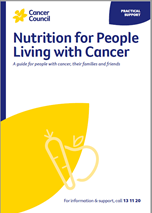- Home
- About Cancer
- Living well
- Complementary therapies
- Whole medical systems
- Using whole medical systems
Using whole medical systems
Below we give a brief overview of the main whole medical systems used in Australia – Ayurvedic medicine, Chinese medicine, homeopathy and naturopathy.
Ayurvedic medicine
| What is it? | Ayurvedic medicine is an ancient Indian system founded on the concept that health is achieved when the mind, body and spirit are in balance. The term Ayurveda comes from the Sanskrit words ayur (life) and veda (knowledge). According to Ayurvedic theory, everyone is a combination of 5 elements: air, water, fire, earth and space. These elements form 3 energies or life forces called doshas: vata, kapha and pitta. |
| What to expect | An Ayurvedic practitioner takes a case history and assesses vital force and balance in the body, often by looking at your tongue and by taking your pulse. Treatment may include herbal medicine, dietary changes, massage, meditation and yoga. |
| Evidence for people with cancer | There is good evidence for the effectiveness of some parts of Ayurvedic medicine, such as massage, meditation and yoga. There is limited clinical evidence on the herbal remedies and certain diets used. |
Chinese medicine
| What is it? | Chinese medicine is based on the idea of balance between mind, body and environment to prevent and manage diseases. Chinese medicine considers the person’s overall condition, not just their symptoms. It includes many different practices such as acupuncture; breathing and movement exercises called qi gong; movement exercises called tai chi; the practice of burning herbs near the skin called moxibustion; herbal medicine; and dietary changes. |
| What to expect | A practitioner will take a case history and do a physical examination. This usually includes looking at your tongue and taking your pulse (tongue and pulse analysis) to work out the flow of energy and imbalances in your body. Treatment is tailored to each person using a variety of therapies. |
| Evidence for people with cancer | There is clinical evidence for the benefits of some aspects of Chinese medicine, while for other aspects the evidence is limited. For benefits and evidence of specific therapies, see acupuncture, Chinese herbal medicine, qi gong and tai chi. |
Homeopathy
| What is it? | Homeopathy is a system of health care based on the theory that “like cures like”. Homeopathic remedies are made from plant, mineral and animal substances that are diluted in water. They are said to stimulate energy in the body that relieves the symptoms of ill health, helps restore vitality and reduces emotional imbalances in the body. Homeopathy is commonly used in India alongside conventional treatment. |
| What to expect | A homeopath considers your medical history, as well as the kind of person you are and how you respond physically and emotionally to your symptoms. A remedy is prescribed as liquid drops or tablets, which are taken throughout the day. You may also be given a cream for your skin. |
| Evidence for people with cancer | There is no reliable scientific evidence that homeopathy has any benefits for people with cancer. |
Naturopathy
| What is it? | Naturopathy has two main beliefs – that good health depends on the interaction of the mind, body and spirit, and that the body has its own healing ability. It is based on 6 principles: the healing power of nature; identify and treat the causes; first do no harm; doctor as teacher; treat the whole person; and focus on prevention. |
| What to expect | After taking a case history, a naturopath may suggest a combination of dietary changes, exposure to natural elements (water and sunlight), massage or exercise, lifestyle changes, counselling, and herbal or nutritional remedies. |
| Evidence for people with cancer | Some aspects of naturopathy, such as massage and nutrition (excluding extreme dietary practices), have good clinical evidence. Other aspects have mixed levels of evidence. See massage, naturopathic nutrition and Western herbal medicine. |
→ READ MORE: Individual therapies
Meditation and Relaxation Podcast
Listen to more of our meditation and relaxation podcast for people affected by cancer
More resources
Dr David Joske, Clinical Haematologist, Sir Charles Gairdner Hospital and PathWest, Chairman and Founder Solaris Cancer Care Foundation, Clinical Professor of Medicine, The University of Western Australia, WA; Australasian Integrative Medicine Association (AIMA); Dr Robert Blum, Clinical Director, Cancer Services, Bendigo Health, NSW; Sally Brooks, Senior Pharmacist, Medicines Information, Peter MacCallum Cancer Centre, VIC; Dr Suzanne Grant, Senior Research Fellow, NICM Health Research Institute, Western Sydney University, and Chris O’Brien Lifehouse, NSW; Prof Danforn Lim, Adjunct Professor and Advisory Board Member, NICM Health Research Institute, Western Sydney University, and Adjunct Professor, UTS, NSW; Christina Line, Statewide Services Senior Coordinator, Cancer Council WA; Jen McKenzie, Physiotherapist (Lymphoedema) and ESSA Accredited Exercise Physiologist, The McKenzie Clinic, QLD; Simone Noelker, Wellness Centre and Pastoral Care Manager, Ballarat Regional Integrated Cancer Centre, VIC; Dr Nirzari Pandit, General Practitioner, RACGP Specific Interests Integrative Medicine Group, NSW; Georgie Pearson, Consumer; Cris Pirone, Counsellor, Cancer Council SA; Dr Elysia Thornton-Benko, Specialist General Practitioner, and UNSW Research Fellow, NSW; Kirsty Trebilcock, 13 11 20 Consultant, Cancer Council SA.
View the Cancer Council NSW editorial policy.
View all publications or call 13 11 20 for free printed copies.

